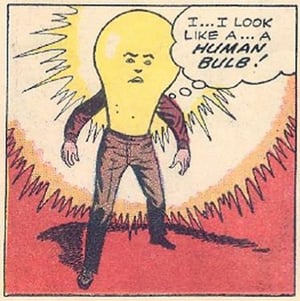They don’t “communicate” faster than light, the wave function itself is non-local and collapses non-locally.
- 0 Posts
- 50 Comments
Dark matter is not a thing, it’s an observation, a phenomenon that was poorly named. There’s so much evidence under the name “[d]ark matter” that we can’t discount it as a real phenomenon. We just don’t have a strong evidence for a single dark matter theory (theory in the scientific sense of the word, not the colloquial one).
No, thank you for the wall of text! I enjoy this type of discussion and even more so on spanish and portuguese.
I really find interesting the connection you make with the Caribbean dialects. There has been a great influx of venezuelans and cubans in the south of Brazil and I’m astonished by the similarities that they share with portuguese, sometimes in the choice of vocabulary, some other times in grammatical constructions, and I’ve already heard a cuban or two pronounce /r/ as is done in portuguese.
There’s this book I really enjoy, “From Latin to Spanish” by Paul Lloyd, that goes at length on the phonological and syntactical evolution of spanish and, damn, spanish really did take quite the funky path in the evolution of its phoneme system while portuguese remained conservative in plenty of its inventory. It’s really fun to compare them and see where they diverged and how some phenomena are really quite distinctly romance, like palatalization due to a yod.
I can never escape the chilean diss. /j

 2·4 个月前
2·4 个月前Spanish also has 4 different datives: dativo de interés (dative of interest), dativo posesivo (possesive dative), dativo ético (ethical dative), and dativo aspectual (aspectual dative). All really common. The dativo ético is, as I understand it, equivalent to “on me” in “the dog died on me” while the dative from the OP would be the dativo de interés.

 2·4 个月前
2·4 个月前It’s 0, since ∂t/∂x = 0.

 4·4 个月前
4·4 个月前I can get two whoppers for about 5 dollars and they are full of flavor over here (Brazil).

 2·4 个月前
2·4 个月前There are two very different things that take the form •'s:
-
as the clitic version of a verb, is, has, and sometimes was and does; 2) as the genitive/possessive case marker.
-
can be attached at the end of all noun phrases, even when the noun phrases is a single pronoun, like it: it’s=it is, it has (or it was and it does in some dialects).
-
can be attached to all noun phrases except to personal pronouns. These inflect, they change their forms: I>my, mine; you>your, yours; he>his; she>her, hers; it>its; we>our, ours; they>their, theirs.
Historically, the genitive case marker •'s originated from inflectional morphology in the form of •es. Different classes of nouns would have different case markers but the •es version ended up prevailing over the others as english shed its case system. The apostrophe that turned •es into •'s seems to have come from imitating the french practice of using an apostrophe where a vowel wasn’t pronounced anymore.
-

 4·5 个月前
4·5 个月前I never mentioned pronunciation. I only talked about the untrue claim that english grammar was inconsistent because it was mixed with other languages. The mismatch between pronunciation and spelling is the fault of the printing press.

 6·5 个月前
6·5 个月前English grammar and conjugation is quite consistent compared to its spelling, and it’s quite purely Germanic. It got simplified by it’s contact old norse, which resulted in middle english being starkly different from old english.

 51·5 个月前
51·5 个月前Here is an excelent Kurzgesagt video.
 3·6 个月前
3·6 个月前It’s the slowest in speech and the one that conveys information the slowest too.
My S21 FE has automatic call recording natively, you only have to go to the settings and enable it.

 3·8 个月前
3·8 个月前It’s not “inflating”, it’s “insularum” (they also used to use the tilde as a shorthand for m and n), using the old long s
I’ll add Spanish! “Alfil”, taken from arabic “(al-)fil”, taken from persian “pil”, meaning “the elephant”, since at some point in the past the piece was, evidently, an elephant.
States are defined by sovereignty over territory and a group of people. They are what we commonly call countries. [1] The United States, Great Britain, and Nigeria are all examples of states
https://chass.usu.edu/international-studies/aggies-go/nation-states



Sure, but anything that tried to explain the observations would be a dark matter theory, and if that theory involved particles, it’d be a particle theory.
Dark matter isn’t a theory, nor is it particles, it’s just a body of observations that’s poorly named. In that sense, dark matter definitely exists, we just don’t know in what shape or form.